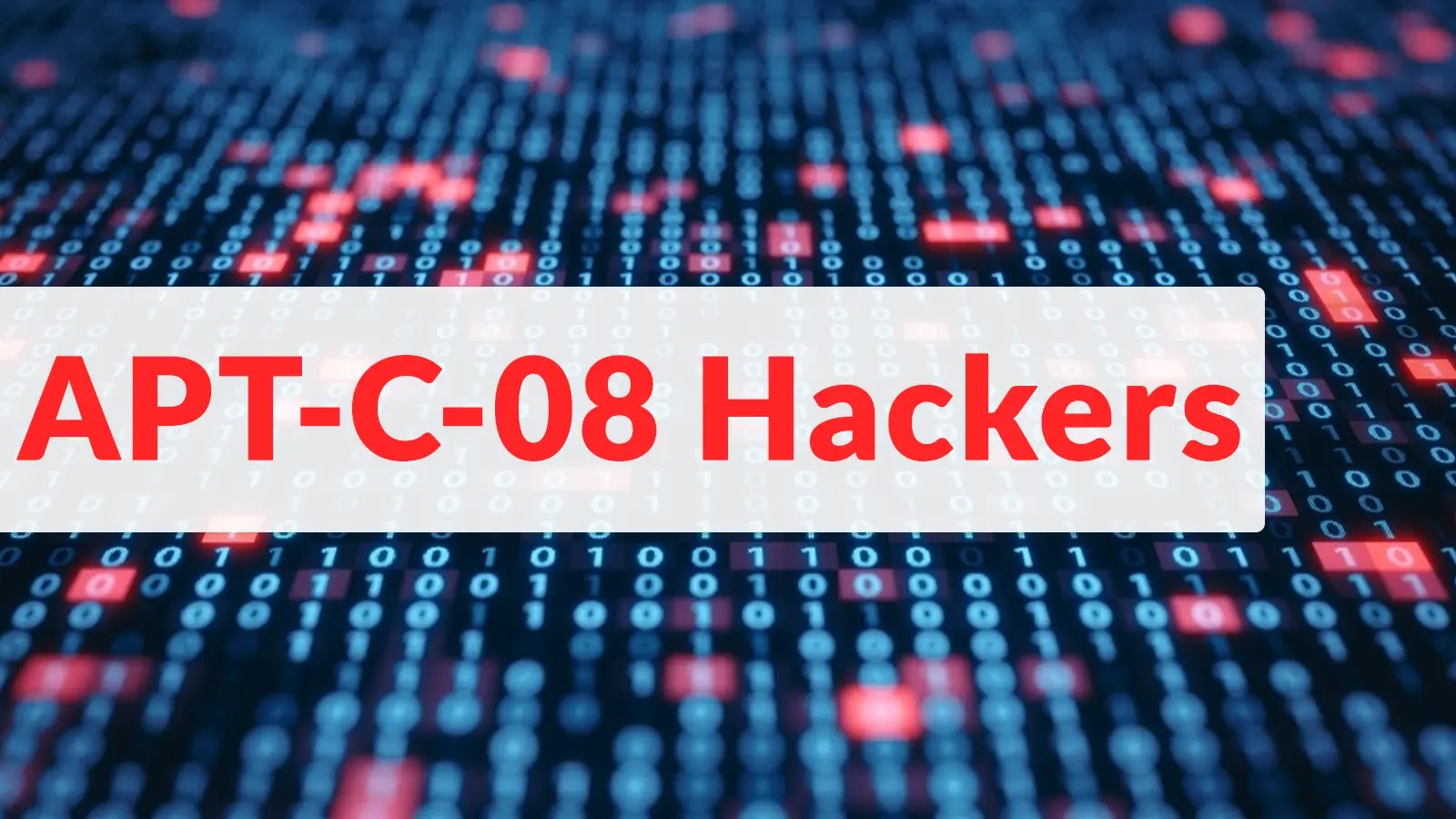
APT-C-08 Hackers Exploiting WinRAR Vulnerability to Attack Government Organizations
A Growing Threat: APT-C-08 Exploits WinRAR Vulnerability Against Government Entities
In a significant escalation of cyber warfare, the advanced persistent threat (APT) group known as APT-C-08, also referred to as Manlinghua or BITTER, has launched a targeted campaign against government organizations across South Asia. This sophisticated operation leverages a critical directory traversal vulnerability within WinRAR, a widely used file archiving utility. Security researchers have pinpointed this as the first observed operational use of CVE-2025-6218, impacting WinRAR versions 7.11 and earlier. The exploit allows attackers to execute arbitrary code and gain control over compromised systems, posing a severe risk to national security and sensitive data.
Understanding the Threat: Who is APT-C-08?
APT-C-08, known by various monikers including Manlinghua and BITTER, is a persistent and highly organized threat actor. Their history indicates a focus on espionage and data exfiltration, primarily targeting government and defense entities within the South Asian region. Their modus operandi often involves sophisticated social engineering tactics combined with exploiting zero-day or recently disclosed vulnerabilities to achieve their objectives. The current campaign demonstrates their continued adaptability and skill in weaponizing common software for nefarious purposes.
Dissecting the WinRAR Vulnerability: CVE-2025-6218
The core of this attack lies in CVE-2025-6218, a directory traversal vulnerability found in WinRAR versions 7.11 and older. This flaw allows a specially crafted archive file (e.g., a .RAR or .ZIP file) to extract malicious files outside the intended destination directory. When a user extracts such an archive, the attacker can place executable files or other malicious payloads in critical system locations, potentially leading to remote code execution (RCE) or persistent access.
The exploitation chain typically begins with a spear-phishing email containing a malicious WinRAR archive attachment. Once the victim opens and attempts to extract the contents, the directory traversal vulnerability is triggered, dropping malware into a system folder where it can then be executed. This method allows APT-C-08 to bypass traditional security measures that might focus solely on email attachment scanning for known malware signatures.
Impact on Government Organizations
The targeting of government organizations by APT-C-08 through this WinRAR exploit carries significant implications:
- Data Exfiltration: Access to government networks can lead to the theft of highly sensitive information, including national secrets, defense strategies, and personal data of officials.
- Espionage: The ultimate goal is often espionage, gathering intelligence for various geopolitical purposes.
- Disruption of Critical Services: Compromised systems could lead to the disruption of essential government services, impacting public welfare and national infrastructure.
- Long-Term Persistence: APT groups are known for establishing backdoors and maintaining persistence within compromised networks for extended periods, making detection and eradication challenging.
Remediation Actions and Mitigation Strategies
Addressing the threat posed by APT-C-08’s use of CVE-2025-6218 requires a multi-layered approach to cybersecurity:
- Immediate WinRAR Update: Organizations must prioritize updating all WinRAR installations to the latest version (7.12 or newer) to patch CVE-2025-6218. Auto-update features should be enabled where possible.
- Employee Training: Conduct regular and thorough security awareness training, emphasizing the dangers of phishing emails, suspicious attachments, and the importance of verifying sender identities.
- Email Filtering and Sandboxing: Implement robust email security solutions that can detect and sandbox malicious attachments before they reach end-users.
- Endpoint Detection and Response (EDR): Deploy EDR solutions to monitor endpoints for suspicious activity, including unusual file creations, process executions, and network connections.
- Network Segmentation: Segment networks to limit the lateral movement of attackers if a compromise occurs.
- Principle of Least Privilege: Enforce the principle of least privilege for all user accounts and applications, restricting their ability to execute arbitrary code or write to critical system directories.
- Regular Backups: Maintain regular, off-site backups of critical data to ensure recovery in the event of a successful attack.
Detection and Analysis Tools
Organizations can leverage a variety of tools to detect, analyze, and mitigate threats related to this WinRAR vulnerability:
| Tool Name | Purpose | Link |
|---|---|---|
| WinRAR Official Website | Download the latest secure version of WinRAR. | https://www.win-rar.com/download.html |
| VirusTotal | Analyze suspicious files and URLs for known malware. | https://www.virustotal.com/ |
| Snort/Suricata | Network intrusion detection system (IDS) for monitoring traffic for malicious patterns. | https://www.snort.org/ / https://suricata-ids.org/ |
| YARA Rules | Create and deploy custom rules for detecting malware families associated with APT-C-08. | https://yara.readthedocs.io/en/stable/ |
| Endpoint Detection and Response (EDR) Solutions | Proactively monitor and respond to endpoint security threats. | (Vendor-specific, e.g., CrowdStrike, SentinelOne, Microsoft Defender ATP) |
Key Takeaways for Enhanced Cyber Resilience
The APT-C-08 campaign underscores the persistent and evolving nature of cyber threats targeting critical infrastructure and government entities. The sophisticated exploitation of a common application like WinRAR highlights the need for continuous vigilance and proactive security measures. Organizations must prioritize regular software updates, invest in robust email and endpoint security solutions, and most importantly, foster a culture of cybersecurity awareness among all personnel. Remaining updated on threat intelligence and immediately patching identified vulnerabilities are paramount to defending against capable adversaries such as APT-C-08 and safeguarding sensitive information





